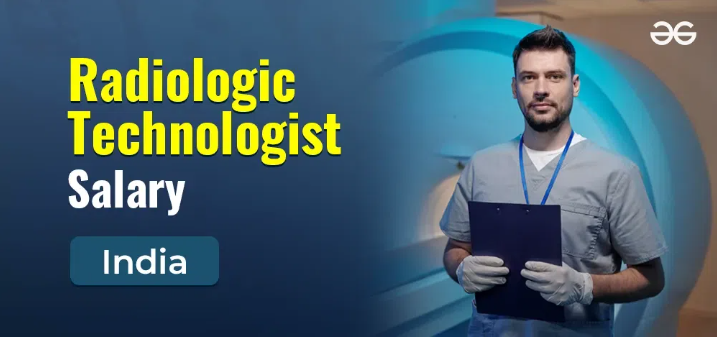Radiologic tech uses diagnostic imaging equipment. It helps the physicians to identify illnesses and injuries. It is used to treat and diagnose patients using images. Their job is physically demanding and the tough part is high volume reading material.
In this article you will learn about Radiology tech salary. Including radiology technician jobs, schools, and its scope.
Radiologic Tech Duties & Responsibilities:
They can specialize in several and one type of diagnostic imaging technology. They are often referred to by a title. It reflects the technology in which they specialize. Few jobs duties and responsibilities are common among them:
- Follow the order of a physicians’ regarding the areas of the body of which images are required.
- Operate and adjust the imaging equipment.
- Explain the processes to the patients.
- Position the patients and equipment.
- Keep the track of and organize the patient records.
They may also work as an Administer radiation doses to a patient as part of cancer and other disease treatment. They use sound wave technology to get images of a patient’s tissues or organs. They also Measure a patient’s bone mineral density.
They closely work with radiologists and physicians. They play an important role in diagnosing patients’ health conditions. They must also be able to position patients and use the equipment skillfully. It captures the useful, high-quality and diagnostic images. Famous Radiology tech school are Angelina College, Foothill College, Alvin community college and others.

radiology tech school
More info: Best Career Counselling in Mumbai – Free Initial Consultation
Table of Contents
Radiology Tech Salary:
In 2018, The highest-paid radiologic tech worked for the federal government. They earned an average median salary in this specific sector of 65,230 dollars. It is about 31.36 dollars an hour. Radiology tech salary
- Median Annual Salary: 59,520 dollars (28.62 dollars /hour)
- Top 10% Annual Salary: More than 86,350 dollars (41.51 dollars /hour)
- Bottom 10% Annual Salary: Less than 40,630 dollars (19.53 dollars/hour)
Radiology Tech Skills & Competencies:
You will require soft skills to succeed in this profession.
Communication skills:
You must be able to accurately explain to patients what they are about to experience. You will also have to concisely convey information to physicians and staff.
Patience and empathy:
Patients are likely to be depressed, uncomfortable, and not on their best attitude.
Physical stamina:
You will spend many hours on your feet. So, you may have to physically assist the patients in a number of circumstances.
Mathematical Capability:
You should be goal-oriented. And you should be good at science and math.
What do they actually do?
They play a crucial role in your health care. They are also expert consultants to referring physicians. We call the doctor who sent you for an exam. It is a referring physician or your personal physician. They work with your personal physician to choose the exam that fits your requirements. They conduct your exam and then interpret your medical images. They will also recommend further scans or treatments, if necessary.

Radiology Tech Salary
Where do radiologic technologists work?
Radiology technician school typically work in hospitals. However, they may also be found working in stand-alone facilities. It specializes in diagnostic imaging, medical labs and nursing homes.
Many techs work 40 hours a week. Their work depends on their employer. Their shifts may vary in length from long to short. Some techs travel to different locations or states. They work for a temporary period according to the needs of the particular employer.
Radiology Tech Jobs Outlook:
According to The United States Bureau of Labor Statistics, the employment in this field will grow 12% through 2026. It is faster than the overall employment growth. This growth is 7% for all professions in the country.
Workplace Culture:
The majority of radiological tech work in hospitals. Some others work in doctors offices, medical and diagnostic laboratories, and outpatient facilities. They are at risk for contracting illnesses from their patients. But, protections that are in place, like lead gloves and aprons, decrease its likelihood.
Work Schedule:
Jobs in this profession are usually full-time positions. But, emergencies can happen around the clock. The people who are responsible for handling these emergencies l work for odd hours. They work including weekends, evenings, and holidays.
Conclusion:
Hope this helps you to find all the details regarding radiotherapy. Thanks for reading, Have a good day!